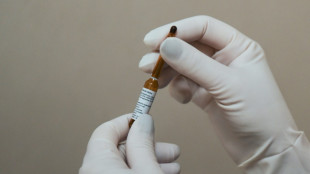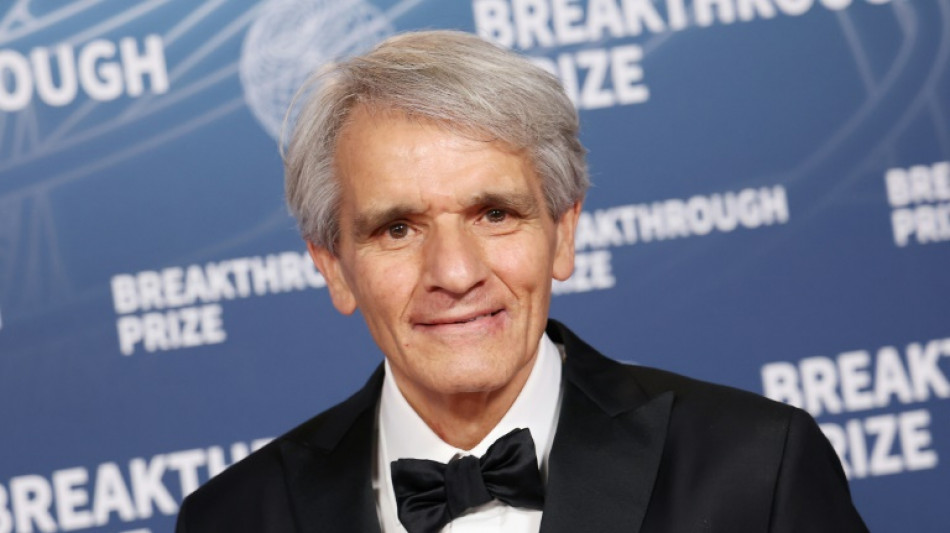
-
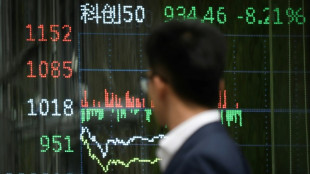 China vows to stay 'safe and promising land' for foreign investment
China vows to stay 'safe and promising land' for foreign investment
-
Stocks savaged as China retaliation to Trump tariffs fans trade war
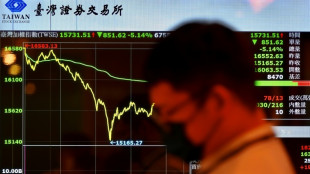
-
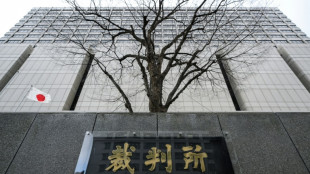 Unification Church appeals Japan's decision to revoke legal status
Unification Church appeals Japan's decision to revoke legal status
-
Belgian prince seeks social security on top of allowance
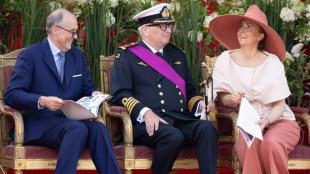
-
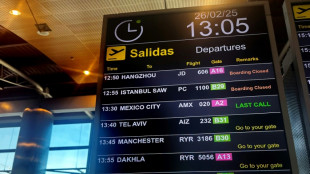 European airlines hit turbulence over Western Sahara flights
European airlines hit turbulence over Western Sahara flights
-
Boeing faces new civil trial over 2019 Ethiopian Airlines crash
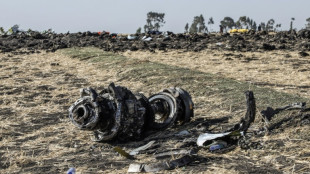
-
 'Fear and anxiety': Bangkok residents seek quake-proof homes
'Fear and anxiety': Bangkok residents seek quake-proof homes
-
Injuries threaten to derail Bayern's home final dreams against Inter

-
 Real Madrid vulnerability evident ahead of Arsenal clash
Real Madrid vulnerability evident ahead of Arsenal clash
-
Texans warily eye impact of Trump's tariffs on their beloved trucks

-
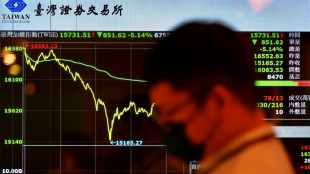 Equities savaged as China retaliation to Trump tariffs fans trade war
Equities savaged as China retaliation to Trump tariffs fans trade war
-
Sara Duterte back in Philippines after month with detained father

-
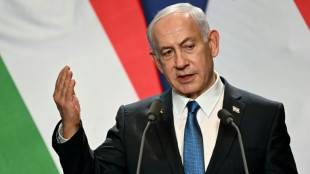 Netanyahu and Trump to talk tariffs, Iran and Gaza
Netanyahu and Trump to talk tariffs, Iran and Gaza
-
Max power, Tsunoda's mixed debut, quick Kimi: Japan GP talking points

-
 Luis Enrique's revolution leaves PSG stronger without the superstars
Luis Enrique's revolution leaves PSG stronger without the superstars
-
Messi on target but Miami held by lowly Toronto

-
 Inter's bold treble bid bumps up against past glory at Bayern Munich
Inter's bold treble bid bumps up against past glory at Bayern Munich
-
Sagstrom digs deep to win LPGA Match Play

-
 The music industry is battling AI -- with limited success
The music industry is battling AI -- with limited success
-
New app hopes to empower artists against AI
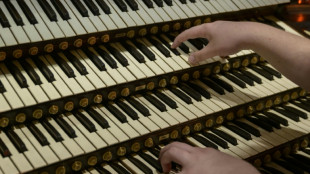
-
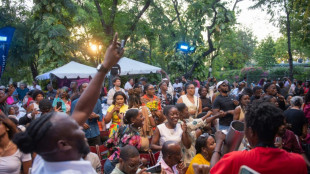 Haiti jazz festival is rare respite for violence-racked capital
Haiti jazz festival is rare respite for violence-racked capital
-
Johnson satisfied after opening Grand Slam series event

-
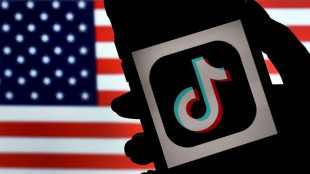 China would have agreed TikTok deal if not for US tariffs: Trump
China would have agreed TikTok deal if not for US tariffs: Trump
-
Quantum Kinetics' Cold Nuclear Fusion - A New Garden of Eden

-
 Pulsar Helium Announces Notice of 2025 Annual General and Special Meeting of Shareholders
Pulsar Helium Announces Notice of 2025 Annual General and Special Meeting of Shareholders
-
Guardian Metal Resources PLC Announces Operations Update

-
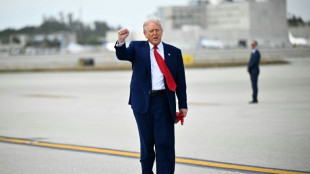 Market panic mounts as world scrambles to temper Trump tariffs
Market panic mounts as world scrambles to temper Trump tariffs
-
Harman keeps calm in the winds to clinch Texas Open

-
 Doncic scores 30 as Lakers rout Thunder
Doncic scores 30 as Lakers rout Thunder
-
Qualifier Brooksby stuns Tiafoe to win first ATP title

-
 McLaughlin-Levrone seals Grand Slam jackpot with 400m victory
McLaughlin-Levrone seals Grand Slam jackpot with 400m victory
-
Juventus miss out on Serie A's top four with Roma draw

-
 Marseille, Strasbourg win in Ligue 1 to close in on Champions League
Marseille, Strasbourg win in Ligue 1 to close in on Champions League
-
Pegula wins WTA Charleston after Kenin collapse

-
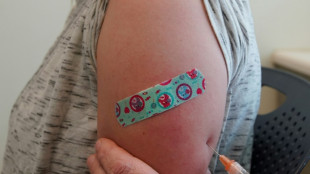 Second US child dies of measles, almost 650 ill: officials
Second US child dies of measles, almost 650 ill: officials
-
Thousands attend funeral of legendary Malian musician Amadou
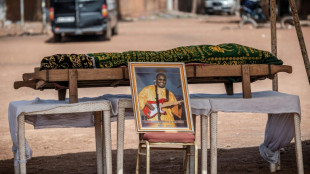
-
 Gaza rescuers say Israeli strikes kill 44
Gaza rescuers say Israeli strikes kill 44
-
Alcaraz admits pressure to take Sinner's number one ranking 'killed' him

-
 US storms, 'devastating' flooding death toll climbs to 17
US storms, 'devastating' flooding death toll climbs to 17
-
Ovechkin achieves the 'impossible'

-
 Comeback man Siraj's 4-17 helps Gujarat to hat-trick of IPL wins
Comeback man Siraj's 4-17 helps Gujarat to hat-trick of IPL wins
-
Ovechkin scores 895th goal to clinch all-time NHL record

-
 No 'killer instinct' as Man Utd, Man City play out derby stalemate
No 'killer instinct' as Man Utd, Man City play out derby stalemate
-
Siraj's 4-17 helps Gujarat to hat-trick of IPL wins

-
 Man City held by Man Utd in derby stalemate
Man City held by Man Utd in derby stalemate
-
'Minecraft Movie' strikes gold to dominate N.America box office
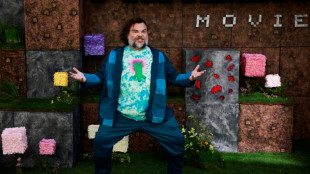
-
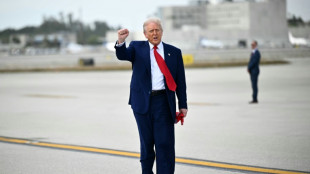 World scrambles to temper Trump tariffs as market fears mount
World scrambles to temper Trump tariffs as market fears mount
-
Strasbourg close in on Champions League with Ligue 1 win at Reims

-
 Toulouse overpower Sale to reach rugby Champions Cup last eight
Toulouse overpower Sale to reach rugby Champions Cup last eight
-
Slot shocked by sloppy Liverpool errors in Fulham defeat

| CMSC | 0.13% | 22.29 | $ | |
| VOD | -10.24% | 8.5 | $ | |
| RBGPF | 100% | 69.02 | $ | |
| RYCEF | -18.79% | 8.25 | $ | |
| RIO | -6.88% | 54.67 | $ | |
| RELX | -6.81% | 48.16 | $ | |
| AZN | -7.98% | 68.46 | $ | |
| NGG | -5.25% | 65.93 | $ | |
| BTI | -5.17% | 39.86 | $ | |
| GSK | -6.79% | 36.53 | $ | |
| BP | -10.43% | 28.38 | $ | |
| CMSD | 0.7% | 22.83 | $ | |
| BCE | 0.22% | 22.71 | $ | |
| JRI | -7.19% | 11.96 | $ | |
| BCC | 0.85% | 95.44 | $ | |
| SCS | -0.56% | 10.68 | $ |

Research on multiple sclerosis wins 'Oscars of science'
An American neurologist and an Italian epidemiologist whose work revolutionized the treatment of multiple sclerosis on Saturday won a prestigious Breakthrough Prize, the award nicknamed the "Oscars of science."
Stephen Hauser and Alberto Ascherio were recognized for their decades researching the debilitating neurodegenerative disease, which affects nearly three million people worldwide and was long considered an impenetrable enigma.
Hauser's work on multiple sclerosis (MS) started more than 45 years ago, when he met a young patient named Andrea, "an extraordinarily talented young woman who was already an attorney" and working at the White House under then-president Jimmy Carter, he told AFP.
"Then MS appeared in an explosive fashion and destroyed her life," he said.
"I remember seeing her, unable to speak, paralyzed on the right side, unable to swallow, and soon, unable to breathe on her own, and I remember thinking that this was the most unfair thing I had ever seen in medicine."
Then 27 years old, he decided to make it his life's work.
- Rough road -
"At the time, we had no treatments for MS. In fact, there was also a pessimism that treatments could ever be developed," said Hauser, now 74 and director of the neuroscience institute at the University of California San Francisco.
Scientists knew the disease, which damages the central nervous system and leads to paralyzing cognitive and motor problems, was caused by the immune system turning on the body.
But they thought the white blood cells known as T cells were the lone culprit.
Hauser questioned that.
Studying the role played in the disease by B cells, another type of white blood cell, he and his colleagues managed to recreate the damage MS causes to the human nervous system in small monkeys known as marmosets.
The US federal body overseeing medical research dismissed the link as "biologically implausible," and turned down their application for funding for a clinical trial.
But Hauser and his team pressed on.
They persuaded pharmaceutical company Genentech to back testing. In 2006, they got resounding results: treatments targeting B cells were associated with "a dramatic, more than 90-percent reduction in brain inflammation," Hauser said.
It was "something of a scope that had never been seen before."
That threw open a door to bring new treatments to market that slow the advance of the disease in many patients.
But it also raised other questions. For example, what would cause our white blood cells to turn against us?
- The virus connection -
That was a question that puzzled Ascherio, today a professor at Harvard.
He decided to investigate why MS mostly affected people in the northern hemisphere.
"The geographical distribution of MS was quite striking," he told AFP.
"MS is very uncommon in tropical countries and near the equator."
That made him wonder whether a virus could be involved.
He and his team carried out a long-term study following millions of young US military recruits.
After nearly 20 years of research, they came up with an answer. In 2022, they confirmed a link between MS and the Epstein-Barr virus (EBV), a common infection responsible for another well-known disease, infectious mononucleosis, or mono.
"Most people infected with EBV will never develop MS," said Ascherio, 72.
But everyone who develops MS has had EBV first.
The discovery still did not explain why MS occurs. But it fuelled hope of finding new treatments and preventive measures for a disease that remains uncurable, and whose current treatments do not work on all patients.
Ascherio's breakthrough could also help treat other conditions.
"We are now trying also to extend our investigation, to investigate the role of viral infection in other neurodegenerative diseases, like Alzheimer's or amyotrophic lateral sclerosis," also known as ALS or Lou Gehrig's disease, he said.
The link remains theoretical for now. But "there is some evidence," he said.
"It's like where we were on MS 20 or 30 years ago."
H.E.Young--AMWN


